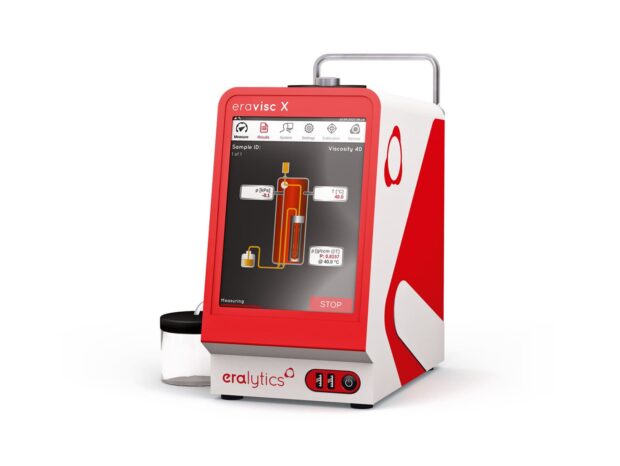Standard Practice for Calculating Viscosity Index from Kinematic Viscosity at 40 °C and 100 °C.
Get more information about the standard at ASTM D2270-10(2016).
ASTM D2270 is a standard practice for calculating the viscosity index (VI) of petroleum-based and synthetic lubricating oils. Viscosity index is a critical parameter that quantifies how a lubricant’s viscosity changes with temperature. This standard is widely used in the lubricant industry to ensure optimal performance in diverse operating conditions, particularly under extreme temperatures. By standardizing the calculation of viscosity index, ASTM D2270 ensures that lubricants meet the performance requirements of modern machinery, enhancing reliability, efficiency, and equipment longevity across industries.
Details
The viscosity index (VI) is a dimensionless number that indicates a lubricant’s resistance to viscosity changes with temperature variations. A higher VI signifies that the lubricant maintains a more stable viscosity across a broad temperature range, ensuring better protection and performance of mechanical components.
ASTM D2270 provides a straightforward method to calculate VI using two measured kinematic viscosities:
- Viscosity at 40°C (V40)
- Viscosity at 100°C (V100)
The calculation compares the lubricant’s viscosity behavior to reference oils with known temperature-viscosity characteristics. A VI close to 100 represents average performance, while values above 100 indicate superior thermal stability. Modern synthetic oils can achieve VI values exceeding 150.
This standard is essential for selecting lubricants in applications where temperature extremes, such as freezing cold or intense heat, are common. It ensures that oils provide adequate lubrication, reducing wear and extending equipment life.
Industries & Applications
ASTM D2270 is widely applied in industries where machinery and engines operate under varying temperature conditions:
- Automotive industry: Used to evaluate engine and transmission oils to ensure reliable performance in cold starts and high-temperature engine operations
- Aviation: Ensures aviation lubricants maintain viscosity stability in high-altitude, low-temperature environments, as well as during high engine loads
- Industrial machinery: Supports the selection of hydraulic fluids, gear oils, and other lubricants for equipment exposed to fluctuating operating temperatures
- Marine industry: Helps evaluate oils for engines and equipment in ships, which face both arctic and tropical conditions
- Oil and gas: Ensures lubricants used in drilling and refining equipment perform reliably under extreme conditions
- Energy research: Facilitates the development of advanced synthetic lubricants with higher VI for sustainability and efficiency
